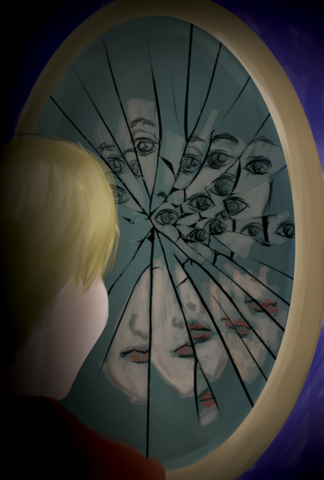The first way to talk about society is by clarifying that society never does anything. Society doesn’t objectify people or oppress them. Society doesn’t create norms. Neither does society enforce prejudices or stigmatize alternative ways of living. People and groups of people do all these things. Discussing “society” means that whatever might be discussed is really the interactions and expressions of individuals.
It’s very popular to be angry with society right now for its perceived grievances or majoritarian authority. The problem with this sort of rebellious approach is that “society” itself cannot be criticized. Its temperament and exclusive nature can only be chalked up to psychological states in the minds of its citizens. Society never holds anyone back, other people do. When society is recognized as a useful fiction to describe coordinated groups of people, it can be discussed. Otherwise, when discussed like an emergent quality of a population, it’s useless and out of touch with reality.
The majority of people blame their problems on society. There’s a classic phenomenon called “God is in the details,” which is usually about rewards coming out of focused attention (sometimes attributed to Friedrich Nietzsche, sometimes to an architect), but which can also describe the evolution of human desperation in its conviction of God.
In early history, the Western world thought its God lived in the clouds above. After the invention of the telescope, the world moved its God back to outer space. Now, with our advanced technology, we can see billions of light-years into space — with ourselves at the radius of the observable universe, of 45 billion light-years — and still cannot find God. So, the theological theories have changed (now God is “all around us” or “in another dimension,” and he breaks the laws of physics and logic).
The way that many people consider their social problems is similar to this. Without being able to accurately pin-point an antagonist, they turn to blaming society, which doesn’t even really exist and cannot reveal anything. It’s the source of a lot of misplaced political frustration, particularly in far-left and far-right ideologies.
None of this is to say that people, acting as individual components of a society, don’t commit a lot of individual atrocious actions or are responsible for atrocious opinions. When a society is said to enforce something, it’s a useful fiction to be read as the coordinated group effort of personal minds and bodies toward a common prejudice — a prejudice not shared “institutionally” but individualistically.
It’s inaccurate to say society passes judgments. Certainly, though, people stigmatize behaviors and exclude abnormal personality types. More and more, people invalidate authenticity — egoism dressed up as faux-authenticity becomes en vogue, and vulnerability and genuine emotional expression become archaic.
These are not the blame of a society. Society itself becomes some sort of idealistic (that is, made real by the mind) scapegoat for which to thrust blame upon. In this misconception it becomes an unpenetrable fortress from which cultural norms can never evolve or move beyond.
William Rein can be reached at orionopinioneditor@gmail.com or @toeshd on Twitter.






